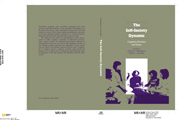Book contents
- Frontmatter
- Contents
- Contributors
- Preface and acknowledgments
- Introduction: The self–society dynamic
- 1 Exploring the relevance of social cognition for the relationship of self and society: Linking the cognitive perspective and identity theory
- 2 Toward a sociology of cognition
- 3 The cerebral self: Thinking and planning about identity-relevant activity
- 4 Growing up: The development and acquisition of social knowledge
- 5 The social contexts of self-feeling
- 6 Self-processes and emotional experiences
- 7 An affect control view of cognition and emotion
- 8 The self-concept as a basis for a theory of motivation
- 9 Attitudes, behavior, and the self
- 10 From changing selves toward changing society
- 11 Possible selves and social support: Social cognitive resources for coping and striving
- 12 Is the road to helping paved with good intentions? Or inertia?
- 13 Social structure and the moral self
- 14 The production of selves in personal relationships
- 15 Conclusion
- Indexes
6 - Self-processes and emotional experiences
Published online by Cambridge University Press: 23 September 2009
- Frontmatter
- Contents
- Contributors
- Preface and acknowledgments
- Introduction: The self–society dynamic
- 1 Exploring the relevance of social cognition for the relationship of self and society: Linking the cognitive perspective and identity theory
- 2 Toward a sociology of cognition
- 3 The cerebral self: Thinking and planning about identity-relevant activity
- 4 Growing up: The development and acquisition of social knowledge
- 5 The social contexts of self-feeling
- 6 Self-processes and emotional experiences
- 7 An affect control view of cognition and emotion
- 8 The self-concept as a basis for a theory of motivation
- 9 Attitudes, behavior, and the self
- 10 From changing selves toward changing society
- 11 Possible selves and social support: Social cognitive resources for coping and striving
- 12 Is the road to helping paved with good intentions? Or inertia?
- 13 Social structure and the moral self
- 14 The production of selves in personal relationships
- 15 Conclusion
- Indexes
Summary
In recent years there has been a veritable explosion of interest in the emotions among social scientists. Sociologists, psychologists, and anthropologists are all involved in this intellectual ferment. Sociocultural processes have been shown to play a major role in the formation and expression of the emotions (e.g., Gordon, 1990; Hochschild, 1979, 1983; Thoits, 1985). The aim of this chapter is to show how processes centering on the self can add to our understanding of the emotional lives of human beings.
Reflexivity and emotions
By self-processes, I refer to all the processes involving the self as the object of its own cognition and regulation (Rosenberg, 1990). These processes are features of human reflexivity, that is, phenomena in which the subject and object have the same referent. By virtue of reflexivity, the human being is able to adopt a “third-party” perspective on the self. When one views oneself as an object, one looks at oneself from the outside, observing oneself as one might observe any other object in the world.
All cognitive processes (e.g., attention, classification, evaluation, judgment, reasoning) whose content involves any feature of the self are expressions of cognitive reflexivity. Human reflexivity is also expressed in the control or regulation of the self, called agentive reflexivity (Rosenberg, 1990). Just as human beings strive to affect the external environment in order to meet their needs, so do they strive to produce intentional effects upon the self. Cognitive reflexivity and agentive reflexivity are the chief self-processes.
- Type
- Chapter
- Information
- The Self-Society DynamicCognition, Emotion and Action, pp. 123 - 142Publisher: Cambridge University PressPrint publication year: 1991
- 19
- Cited by

